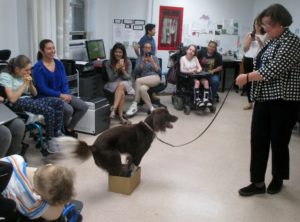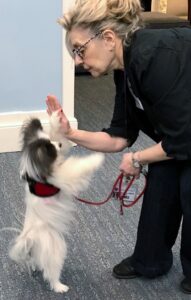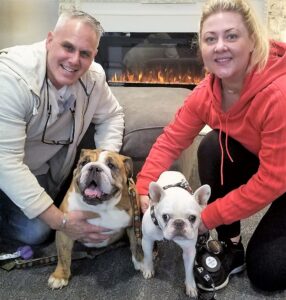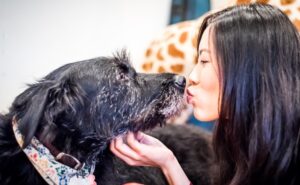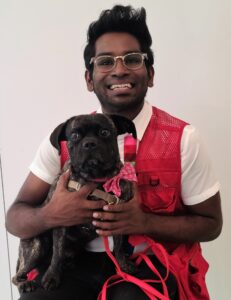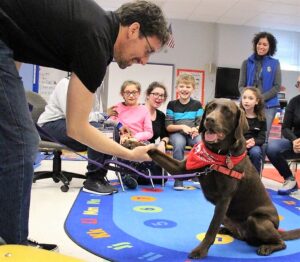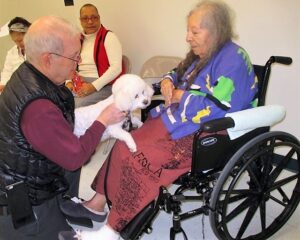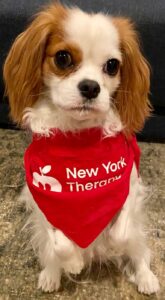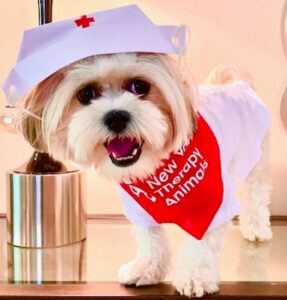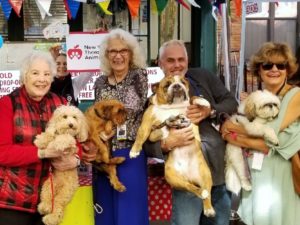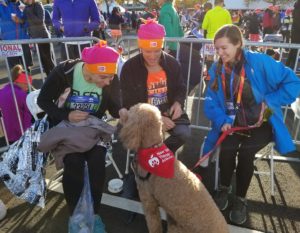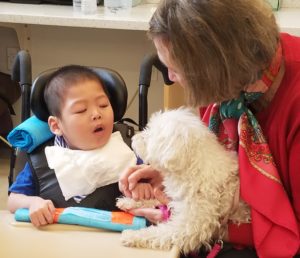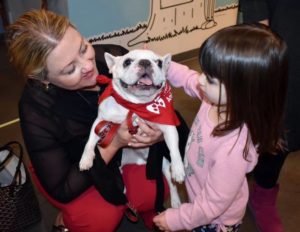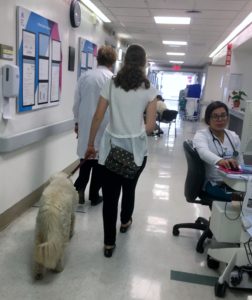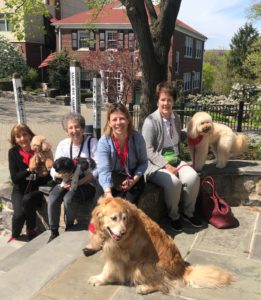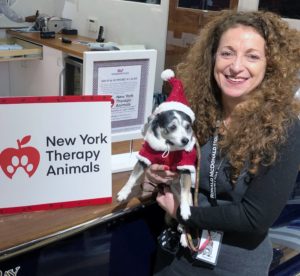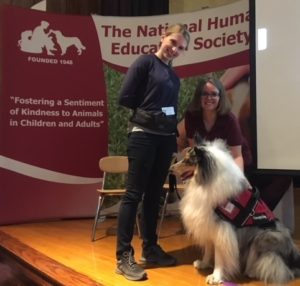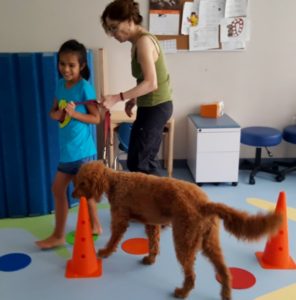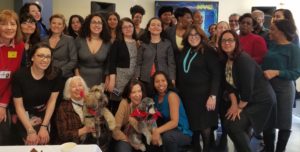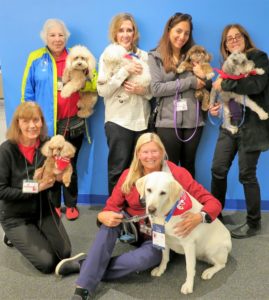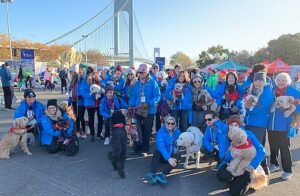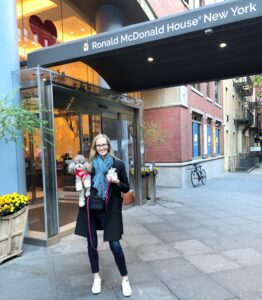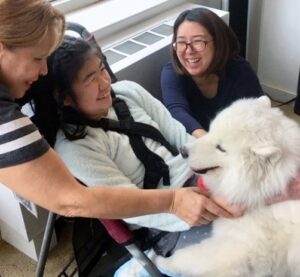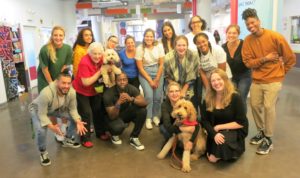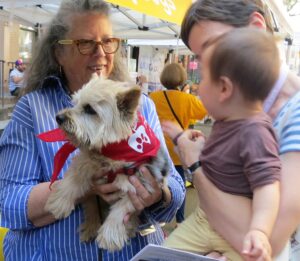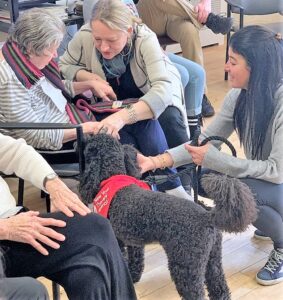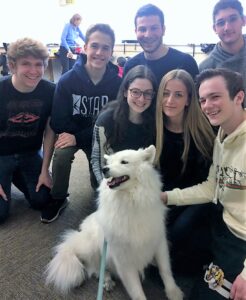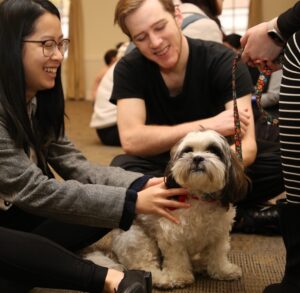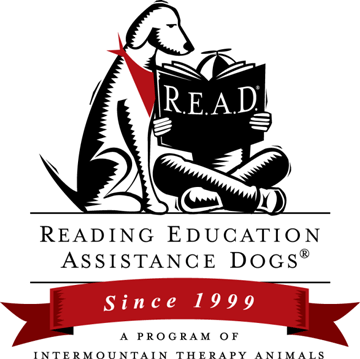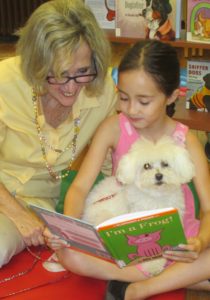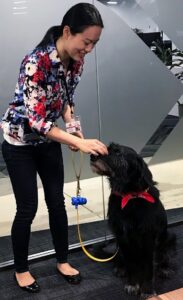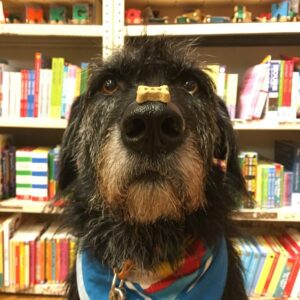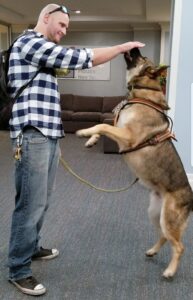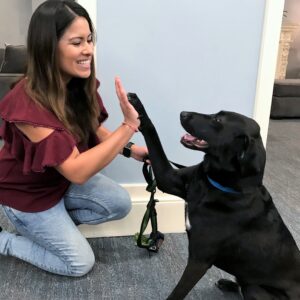 Join Us at New York Therapy Animals
Join Us at New York Therapy Animals
An education and training program to help prepare, inspire and make a difference in our NY communities.
New York Therapy Animals offers a comprehensive therapy dog education and training program to ensure safety, confidence and enjoyment.
We call our work “Serious Fun”
“Let the beauty we love be what we do.” —Rumi
Become a Therapy Dog Team
New York Therapy Animals requires the handler and their dog to complete the 7 week education and hands-on education and training program to become a trained, licensed and insured therapy dog team. Interested people without an animal must attend the one day workshop to become a volunteer ambassador/assistant and be 18 years old. The process requires an initial investment of time and money, and then ongoing education, training and commitment.
The 1st step is to email the founder and director of New York Therapy Animals to set up a phone appointment. This is an opportunity to ask questions and learn about the essential requirements for our education and training program. Nancy@NewYorkTherapyAnimals.org 212 535-2211
New York Therapy Animals partners with the Department of Education (DOE) Comfort Dog Program for education and training for school faculty and their well-mannered and age-appropriate dog. Specific program qualifications will be individually discussed. Please email Nancy for a phone appointment program details.
New York Therapy Animals mandates the COVID vaccine for all our volunteers with proof of vaccine.
Two Part Education and Training Program Process:
1. Attend the 1 day Human Workshop
- We are the NYC affiliate of Intermountain Therapy Animals (ITA) and use their training and testing protocols.
- Copyrighted ITA team training manual since 1993
- Educating the human end of the leash
- Fun and informative day with interactive conversation and guest speakers in the field of AAI (Animal Assisted Interactions/Interventions)
- Licensed ITA Instructor: Nancy George-Michalson
- Topics of conversation: Preparation, Procedures, Populations, Safety, Etiquette, Placement, Demonstrations, Guest Speakers, Q and A
- Workshops are taught in New York City
- Learn the tools to interact with adults and children in various settings and populations
- Reservations required
- Volunteer Ambassadors/Assistants: Workshop is required for volunteers without an animal (Must be 18 years old)
2. Therapy Dog Training Classes (5 hands-on classes with your dog)
- Basic cues for dogs are what we call life safety lessons and are a requirement for your dog before registering: Come when called, Sit, Down, Wait or Stay, Leave it, Drop it, Off, Walks nicely on a loose leash. We refresh these cues moving forward to advanced training.
- Dogs should have excellent dog training prior to therapy dog training so that they are reliable and under control even in crowded situations and when
there are loud noises. Potential therapy dogs must be calm, well-behaved and have excellent manners. Handlers and their dog must have a solid loving relationship with their dog.
- Compassionate and humane teaching methods building trust and respect
- Expert guidance through positive reinforcement techniques preparing for animal-assisted interactions
- Familiarize you and your dog around medical equipment
- Planned curriculum each week emphasizing the skills needed to become a volunteer therapy dog team
- Preparation for you and your dog for the evaluation skills and aptitude evaluation process
- New York City location with classes taught every 7 weeks year round
Required Team Evaluation Screening with your dog partner once you have completed the human workshop and 5 hands-on training classes
- You and your dog will be evaluated for appropriate skills and temperament, your relationship with your dog and your social interactions with clients.
- Dogs must reliably know basic cues, be well-mannered and good listeners.
- Handlers must be pro-active and an advocate for their dog at all times.
- Scheduled on a date after completing the one day workshop and 5 training classes
- Reservations required
- Once passing the skills and aptitude evaluation, your dog must be screened for health, temperament and behavior by your veterinarian
- Complete the membership application
Placement Opportunities
- Once becoming a registered New York Therapy Animals therapy dog team we personally assist you with placement opportunities available in hospitals, healthcare and assisted living facilities, Alzheimer’s facilities, day programs, shelters, schools and libraries, universities, and community wellness events, activities and presentations.
- There is something for everybody to enjoy and feel happy about giving back to their community.
- Volunteer Ambassadors/Assistants without dogs play a significant role in our organization as well.
- All volunteers must be active participants.
- We are committed to helping you with appropriate placement opportunities for our many partnerships that would be best suited for each individual team coordinating with the requests of healthcare directors, school representatives and facilities.
We are the official New York City R.E.A.D. affiliate and we coordinate all New York school and library placement for our teams. This is an additional course once the handler and their dog are a registered New York Therapy Animal team. We partner with the Department of Education (DOE) and the New York Public Library, the Queens Library, READ718 Brooklyn and for all R.E.A.D. school and library programs in New York City, Brooklyn, Queens, Bronx and Westchester.
Personal ongoing support and mentoring and continuing education
- Follow up meetings and mentoring to assist with volunteer choices
- Continuing education classes and workshops for the teams working with different populations
- Dog training behavior support
- How to deal effectively and appropriately with clients, patients, residents and staff
- Arrangements for observing new venues and site assessments
- Shadowing teams to help acclimate in new environments
Tricks in a Therapeutic Environment
